Sport Law Reflection: Analysis of Doping in Athletics and IOC Policies
VerifiedAdded on 2020/10/23
|5
|600
|492
Report
AI Summary
This report provides a critical reflection on the issue of doping in athletics, drawing upon two articles that explore the complexities of this practice. The author examines the Russian Olympic doping scandal and its implications, highlighting the need for more robust anti-doping measures and stricter enforcement by the International Olympic Committee (IOC). The report also discusses arguments for and against the legalization of doping, considering the effectiveness of current testing methods and the pressures athletes face to enhance their performance. The author concludes by emphasizing the importance of technological advancements in doping detection and the need for ethical considerations to ensure fair play and sportsmanship. The analysis underscores the necessity for the IOC to enhance its doping test procedures and implement the latest technologies to effectively combat the use of performance-enhancing drugs, ensuring the integrity of sports and the well-being of athletes.
1 out of 5
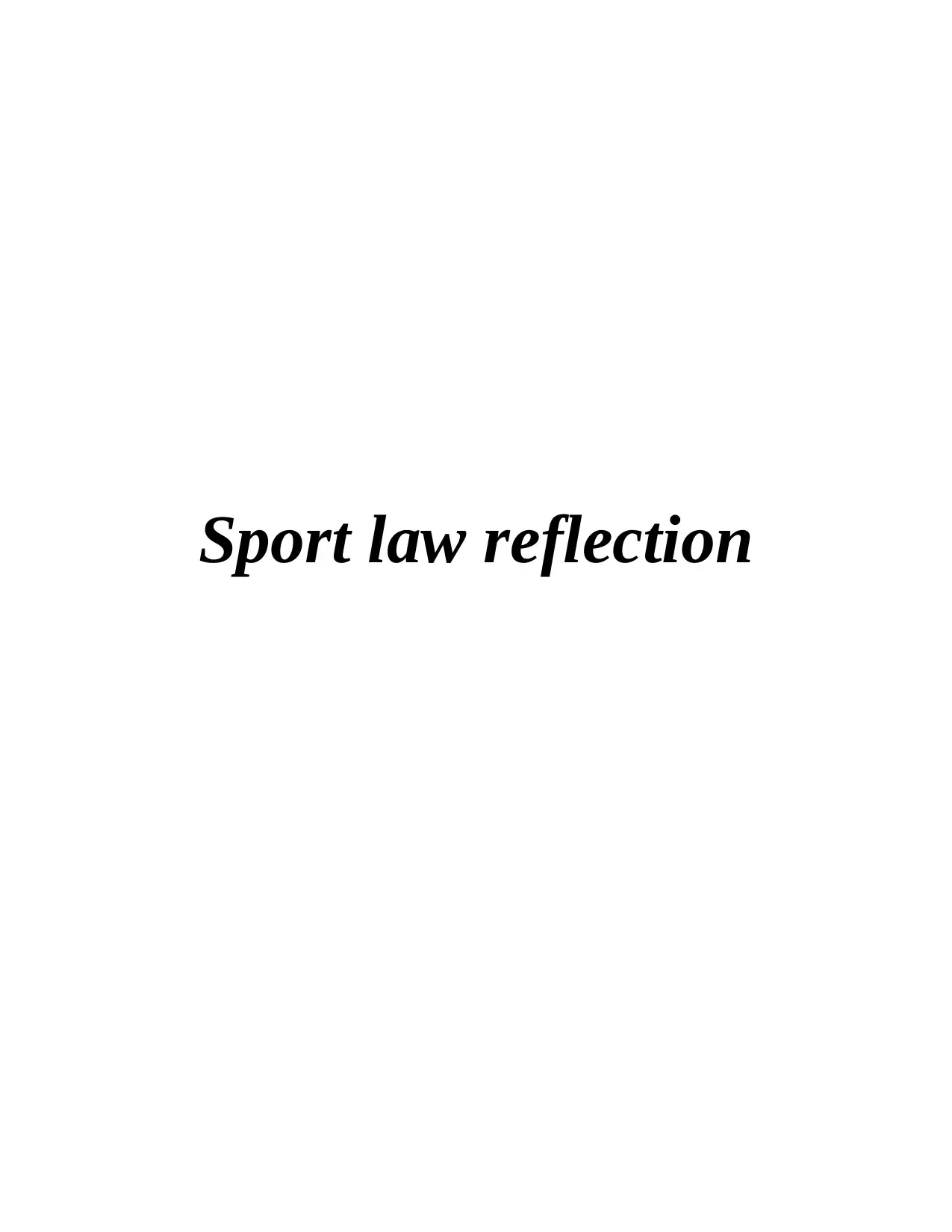
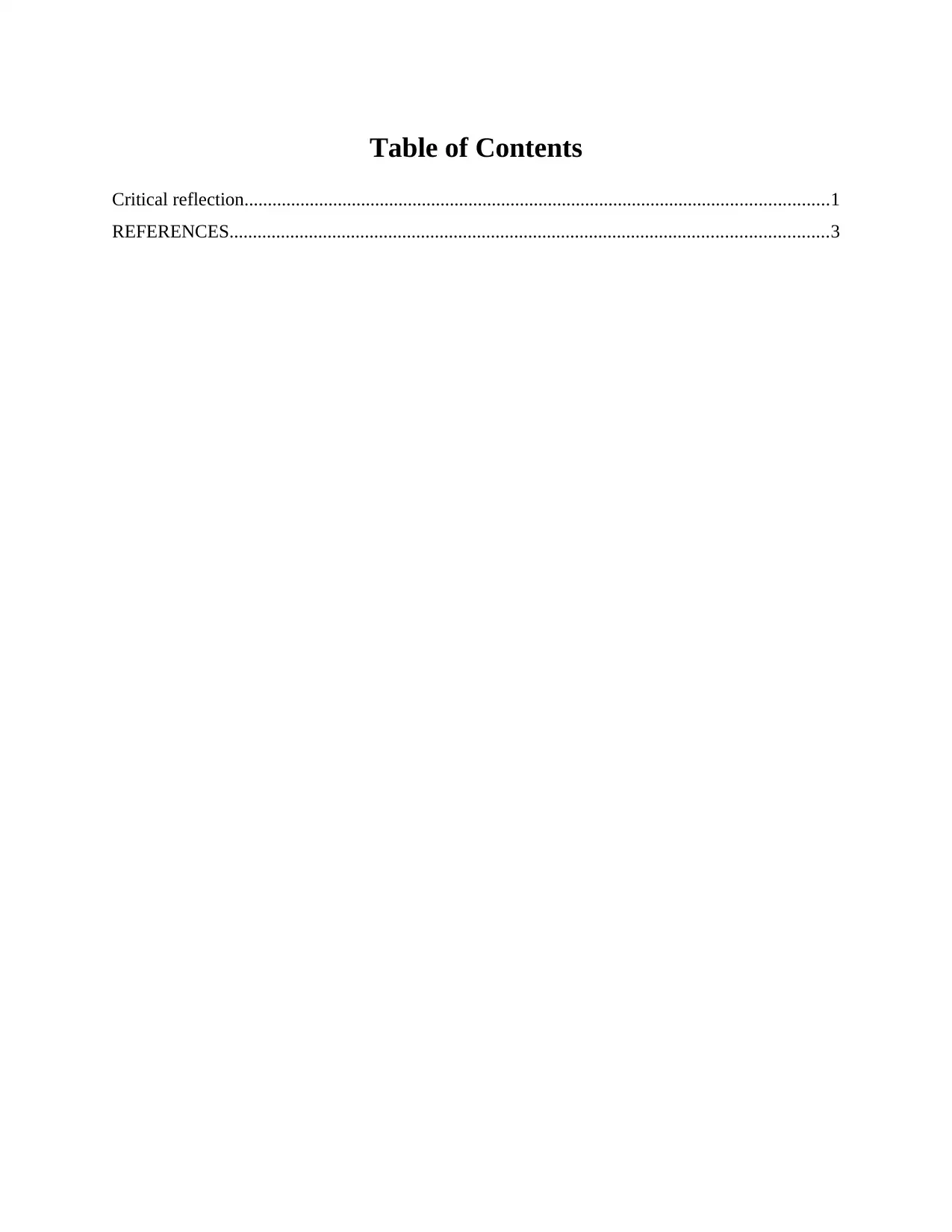
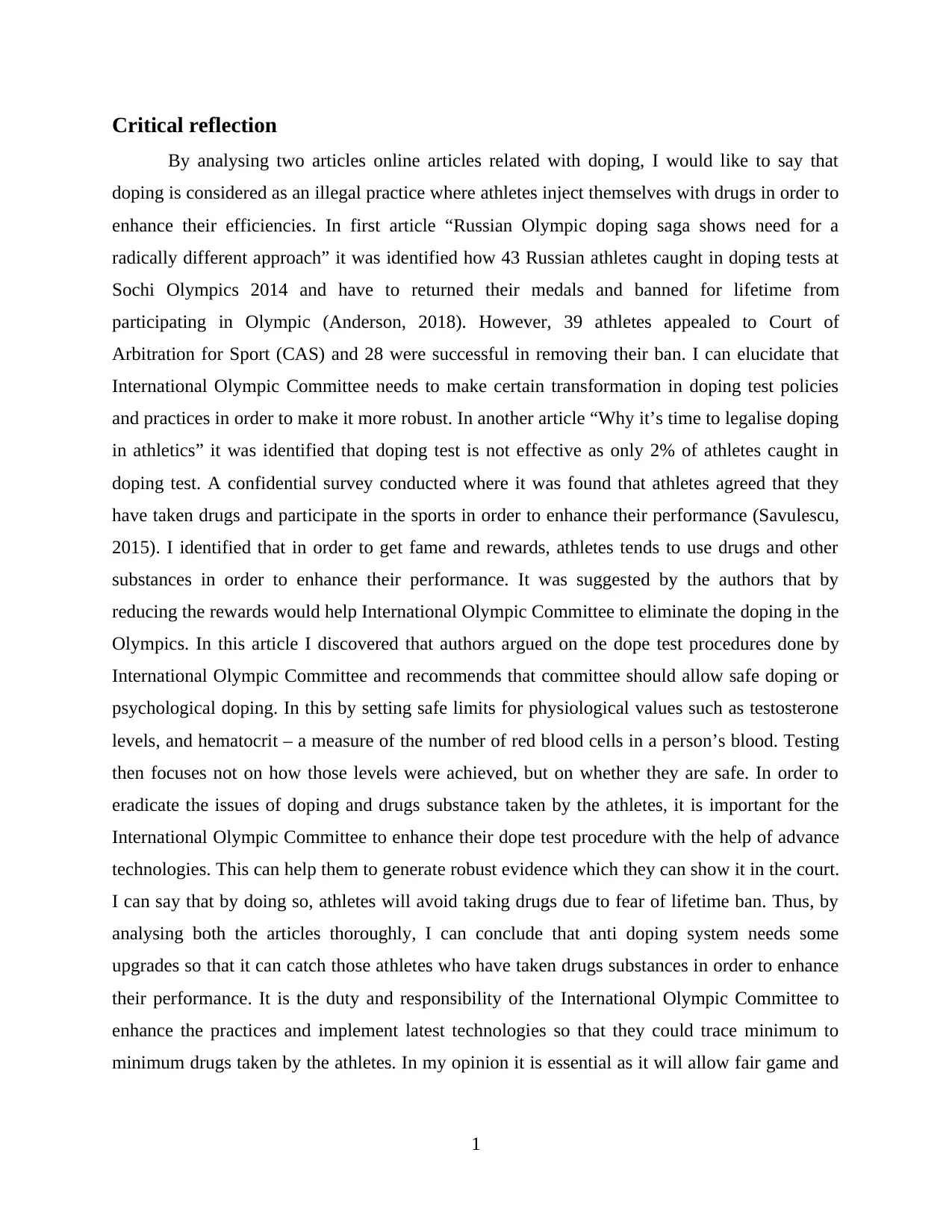

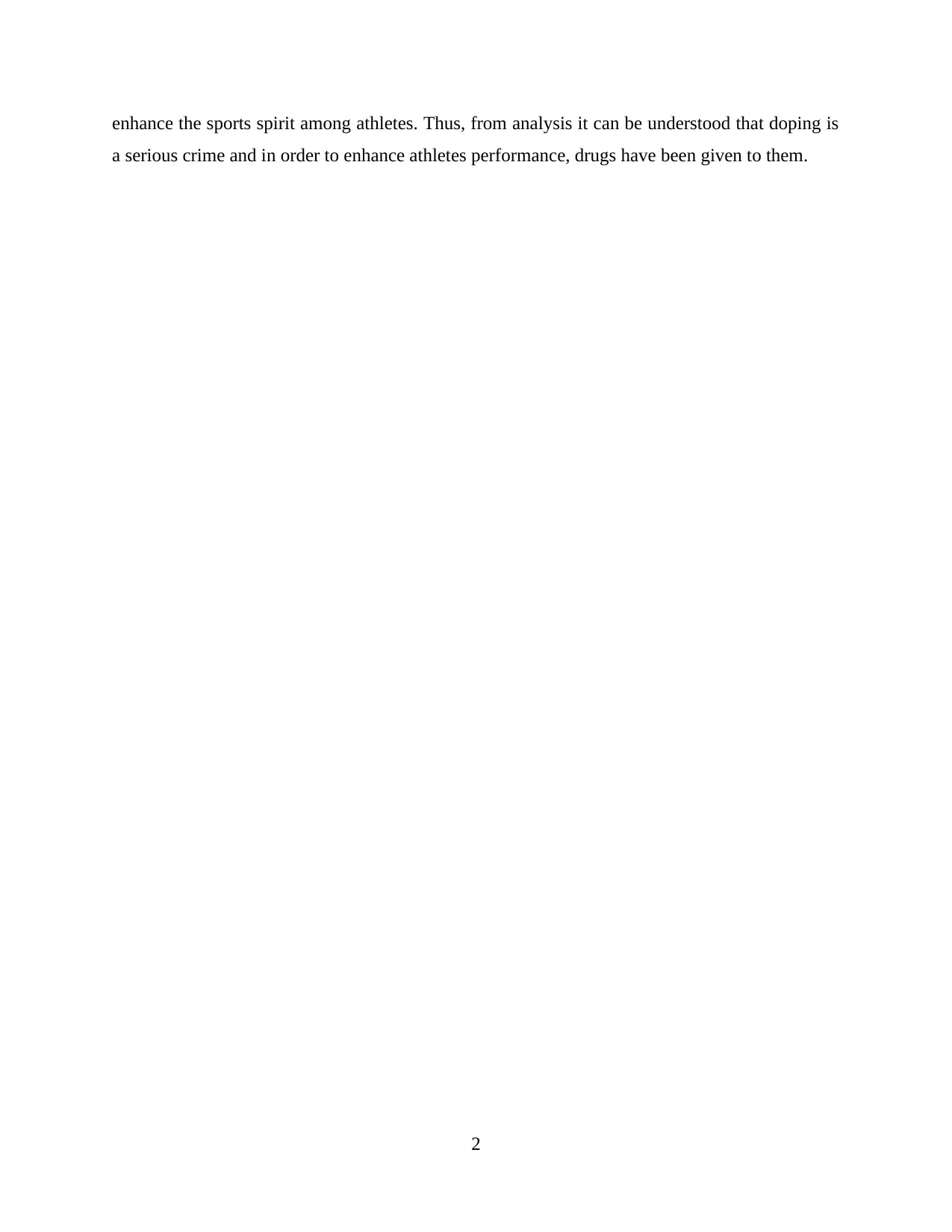
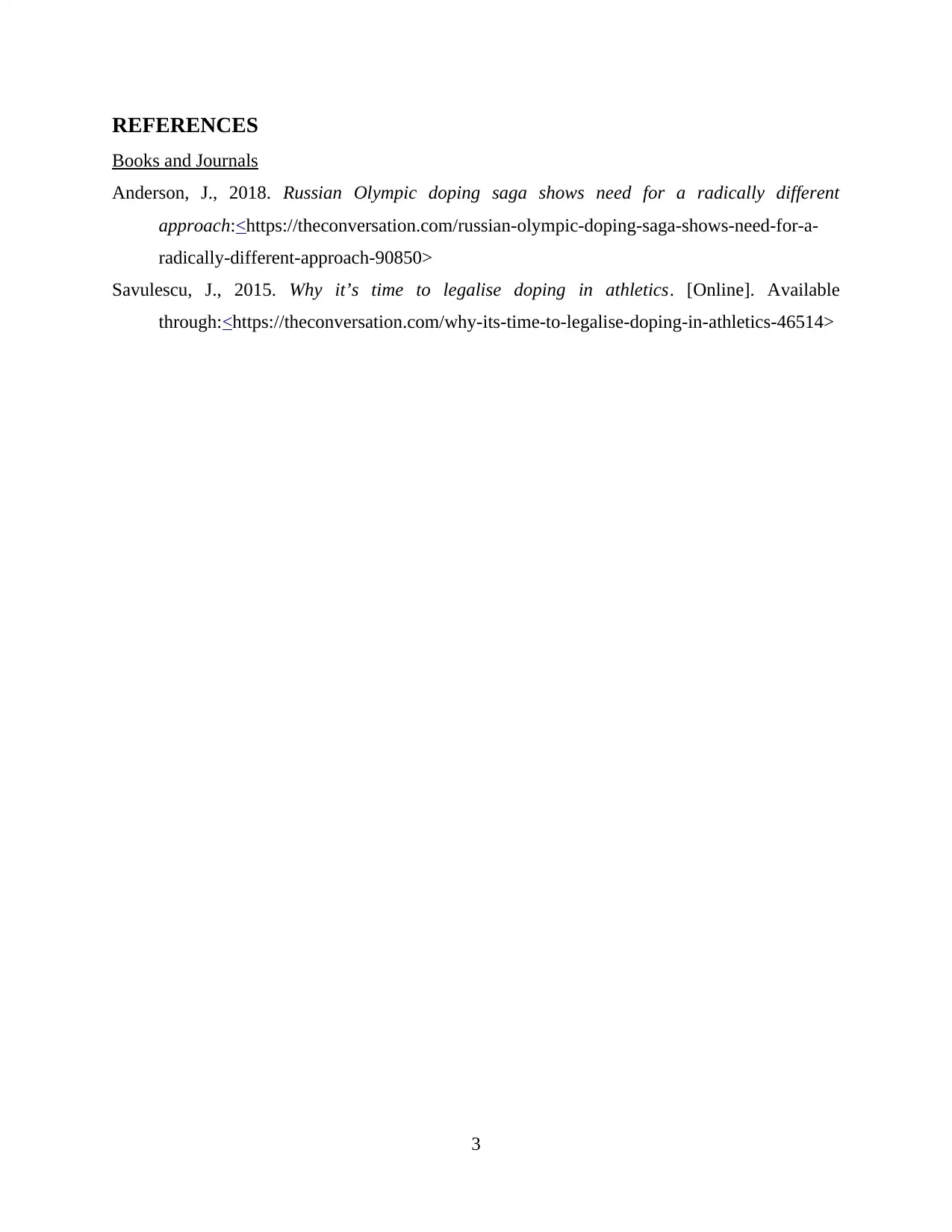




![[object Object]](/_next/static/media/star-bottom.7253800d.svg)